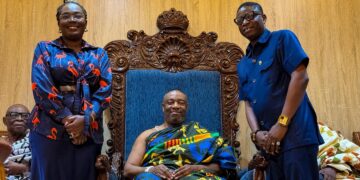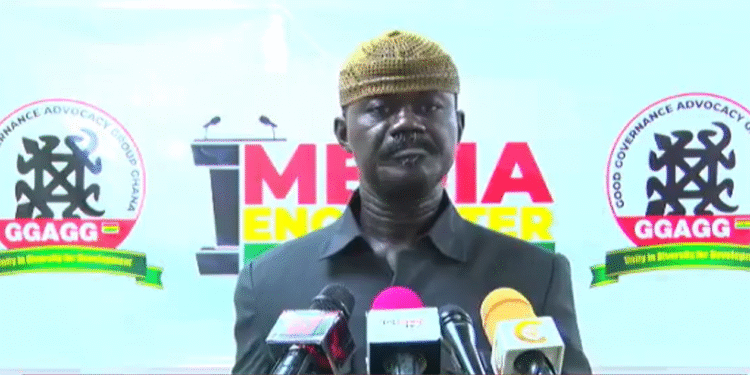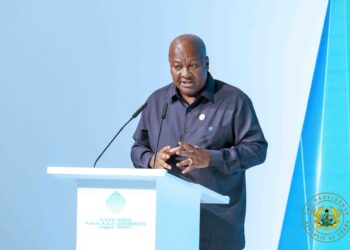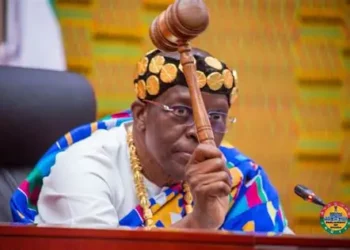Good Governance Advocacy Group Ghana (GGAGG), has raised allegations of state capture at the National Lottery Authority (NLA), claiming that it is under the control of a criminal syndicate.
Addressing journalists on Tuesday, June 11, Executive Director of GGAGG, Listowell Nana Kusi, accused the Akufo-Addo-Bawumia tenure of orchestrating a scheme to take over the NLA for personal gain.
Tracing the NLA’s roots back to 1958 under Ghana’s first President, Dr. Kwame Nkrumah, Kusi emphasized the agency’s original mission of raising revenue for national development.
He noted that the NLA was initially established under the Lotteries Act, 1958 (Act 37), to operate a legal and regulated lottery system aimed at supporting the state’s development goals.
According to the Executive Director, NLA has since strayed from its core mandate.
Mr. Kusi asserted that reforms under the National Lottery Authority Act, 2006 (Act 722), granted the NLA greater autonomy, commercial focus, and regulatory powers.
However, he claimed that this structure has been exploited by private actors seeking to control lottery operations for their own benefit.
Mr. Kusi urged stakeholders and the public to demand accountability and the restoration of the NLA’s integrity.
He said, “The National Lottery Authority is under siege. It’s under siege by what I call a criminal syndicate that was formed in the erstwhile Nana Akufo-Addo and Bawumia regime with a sole aim, sole aim underlined, to totally take over a state-owned company and appropriate whatever belongs to the public into private pockets. This is what we, as Ghanaians, call state capture. National Lottery dates back to 1958 during the presidency of our legendary, our Kwame Nkrumah. Ghana’s first president introduced lottery in Ghana in 1958 by way of making revenues available to government for the sole aim of developing Ghana. The government at that time established the Department of National Lotteries under the Lotteries Act, 1958 Act 37, with the primary objective of generating revenue for the states through legal and regulated lottery system.”
Mr. Kusi added, “Sadly, the NLA today, as you see it, is a Trojan horse since it has abandoned its course and is now like what I call, with cap in hand, begging what was supposed to be a subordinate for arms. The reforms granted the NLA greater autonomy and monopoly and a more commercial-oriented mandate that the NLA was taxed not only with conducting national lotteries but also with regulating and supervising all the operations of the lottery in the country. Now, under the new reforms, the NLA was established as a corporate entity with a board of directors and a director general enjoying operational independence while remaining under the policy and oversight of the Ministry of Finance. Under Act 722, the National Lottery Authority Act, NLA, is mandated to work with licensed entities known as local marketing companies, for the resale of its products. And that’s just about it.”





































